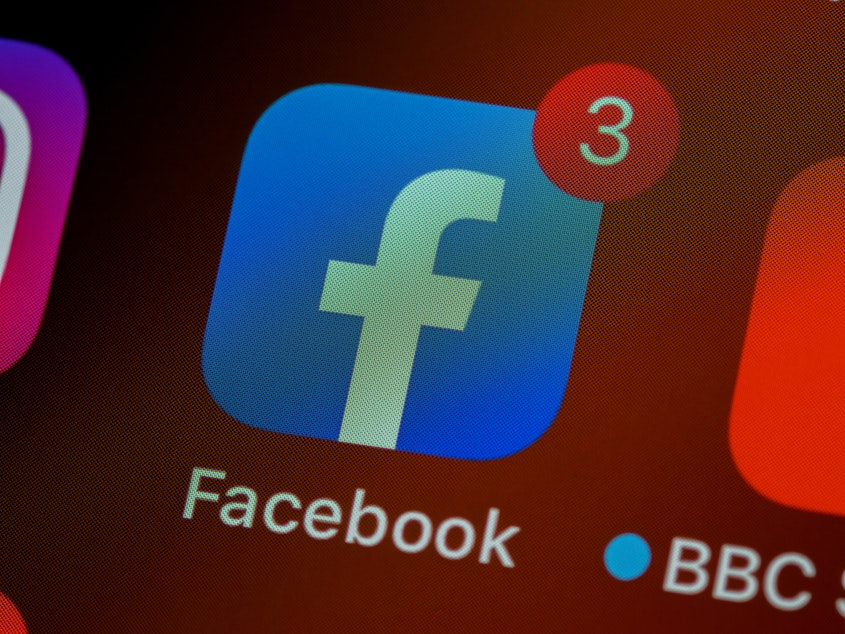Washington judge finds Facebook violated campaign disclosure law

State of Washington V. Meta Platforms, brought to court by Attorney General Bob Ferguson against Meta, Facebook's parent company, concluded that Facebook ran local political advertisements throughout Washington state without properly disclosing information about who ran them.
In response to Facebook's argument that the disclosure law is unconstitutional, King County Superior Court Judge Douglass North called it "very constitutional."
The lawsuit, brought by the Attorney General's office in 2020, is the latest in a series of legal battles over the sale of political ads from the social media giant in Washington state.
Micro-targeted advertisements are a growing trend as social media offers new tools that traditional outlets like broadcast and print news can't. On a platform like Facebook, an advertiser can target an ad based on highly-specific parameters, like posts and interests a user has liked, as well as geographic location, like neighborhoods.
Eli Sanders is the author of "Wild West: Inside the legal shootouts that could redefine rules for the Internet," and a legal fellow at the Center for an Informed Public and the University of Washington.
Sanders has tracked the legal battle between Washington state and Facebook since 2017. In the wake of Russian interference in the 2016 election, he was curious about how political ads could be bought and targeted on Facebook.
"I just wondered, can I walk into Facebook and demand ad information using my rights under Washington's sunshine law?" Sanders said. "But when I went in and asked, I got nothing from Facebook."
Sponsored
Sanders became one of many requesting this kind of information from Facebook, only to be told Facebook wasn't selling political advertisements, or receiving heavily redacted documents instead.
"In terms of the targeting information that was provided, they would say this ad was targeted at Washington state," Sanders explained. "But when you're talking about state, local, county elections, it is not helpful to know that an ad aiming to influence the Seattle City Council election was targeted somewhere within Washington state."
At the end of 2018 Facebook announced it wasn't going to run any political ads in Washington, citing an update in the Public Disclosure Commission's guidelines for tech platforms. At that time, the attorney general's office also won a case instituting a consent decree and requiring Facebook to pay $238,000. Twitter and Google also faced fines and legal scrutiny from the attorney general in the past few years.
Sanders says Facebook did institute a ban publicly, but continued selling ads.
That's when Attorney General Bob Ferguson brought this second suit, in 2020.
Sponsored
In Facebook's defense, the company argued the state was placing too much burden on a digital platform. Washington's law meant the company had to build unique systems to track advertisements in just a single state, which is a small portion of Meta's global advertisement library.
In addition, Facebook claimed the law violated federal law, more specifically Section 230 of the Communications Decency Act. This section differentiates digital platforms from traditional publishers like broadcast and print news, who share liability for defamation alongside an individual.
"Facebook was saying that a state cannot require disclosure of information about political ads in an attempt to regulate its own elections and inform the public in the state," Sanders said. "Because Section 230 means Facebook doesn't have to be responsible or aware of much of anything that runs on its platform in connection with political ads."
Judge North rejected both of Facebook's arguments, saying that issues of defamation are separate from the issues of disclosure in this case. He emphasized that although Washington's disclosure law predates the internet, other publishers of political advertisements have followed it.
"This is not just somebody trying to regulate speech, this is the state providing the information that citizens need in order to be able to to make intelligent decisions about their self government," Judge North said.
Sponsored
The decision means Facebook is likely to face a fine and an injunction. The fine per violation of the disclosure law is $10,000, and Sanders estimates the company could be fined between $300,000 and $7 million.
It is also possible Facebook could appeal the decision, which would take it to the State Court of Appeals and possibly beyond.
Listen to the full conversation by clicking the audio above.
Last year we followed the story of one Washington political consultant who brought Facebook to small claims court — you can listen to that story here.





